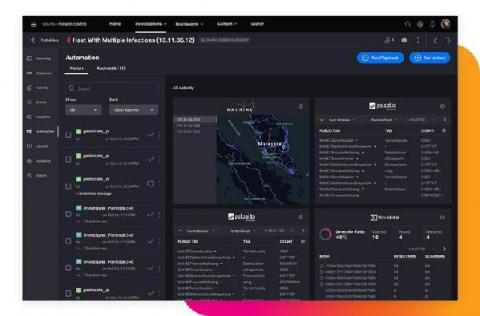Security | Threat Detection | Cyberattacks | DevSecOps | Compliance
Latest News
Trends in Cloud Adoption: Why Cloud Computing is on the Rise
In this post, I’ll answer one question: Have we reached the tipping point for cloud proliferation? According to the report, the answer is yes. ESG surveyed 500 IT and security professionals working in the security operations center (SOC) chain of command at organizations with more than 1,000 employees in North America and Western Europe in Q1 of this year.
Redscan FOI analysis reveals cyber security across UK councils is disjointed and under-resourced
SOARing to the Clouds with Splunk SOAR
For years, security practitioners have kicked and screamed about their reality. There are too many alerts to fully investigate and manually resolve every day. There is a massive talent shortage of qualified security professionals across the globe. Then couple that with analyst burnout and siloed security point-products. All of these factors are preventing security operation centers (SOCs) from operating at their full potential, with increased efficiency, performance and speed.
Phishing in New Waters: Exploiting Live Chat to Deliver Malware
Phishing schemes are always evolving. This past year, email thread hijacking took phishing to new depths of subterfuge as criminals hid in plain sight within existing conversations. But no matter how well cybercriminals have refined their messaging or counterfeited legitimate logos and branding, the one constant has always been their delivery method: email. Until now. Online chat services have become a new target for cybercriminals to introduce documents loaded with malware into organizations.
How To Start Addressing Insider Threats in an Evolving Work Environment
In February 2020, a Time Magazine headline declared, “The Coronavirus outbreak has become the world’s largest work-from-home experiment.” Over a year later, that experiment has been a resounding success for companies and employees who found abundant upsides to less rigid workplace expectations.
Drive DevSecOps Visibility with JFrog Partner Integrations
If you need your teams to act, you need to alert them where they’re already looking. Yet yesterday’s DevOps practices demand individuals to wrangle with uncorrelated events, multiple UIs, and siloed technologies. Tomorrow’s DevOps must enable teams with: To practice DevSecOps, you’ll need to know where a vulnerable build has been deployed into production, and where to find the corrected build that should replace it.
CloudCasa Adds Azure Cloud Storage Option, Ransomware Protection and Kubernetes Persistent Volume Backup
Glaring Gap in Open Source Security: Veracode Finds 80 percent of Libraries Used in Software Are Never Updated
Darkside RaaS in Linux version
AT&T Alien Labs recently analyzed the Linux version of the Darkside ransomware, one of the most active ransomware in the last quarter. Shortly after hitting Colonial Pipeline, Darkside developers announced they would be closing operations.











